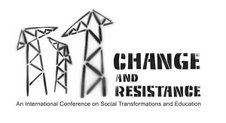Piotr Stańczyk
Uniwersytet Gdański
Commercialization of as many as it is possible spheres of social life advances – higher education system is not an exception but there are still some relic of social system – cost free studies. The problem appears if we realize that this relic is some kind of differentiation of students and it is form of discrimination also. The analyses of external and regular studies resulted in defining the following “four steps of constructing ascendancy” - (1)by paying taxes part-time student participates in maintaining the educational system. (2)But if he/she wants to benefit from it, he/she will have to bear additional cost of tuition fee. It would mean that part-time student bears double cost for (3)less complex educational services and, as if it is not enough, (4)he/she economically supports system out of which he/she is alienated in Marx’s sense.
So there is a question: (1)Who are external students, people who are determined to participate in alienating educational practice? (2)If it is necessity to start external studies? (3)How is participation in this alienating educational practice motivated?
External studies are, in most of cases, necessity depending on: (1)socio-economic distance between parents of both groups of students – regular students’ parents more frequently take higher positions in social stratification structure; (2)educational distance between parents – regulars’ parents are better educated; (3)educational failures of external students at earlier levels of education.
External students are highly motivated to get master degree to get better (in theirs beliefs) job and get chance for “better life” in the same time they are forced to study at much worse condition.
The most important remark is that economical context has dominated thinking of educational processes. Studies only has meaning if it leads to so called “better life” and that “better life” is commonly defined with material prosperity. Academic liberty and personal progress are in danger with principle of free market.
Subscribe to:
Post Comments (Atom)

No comments:
Post a Comment